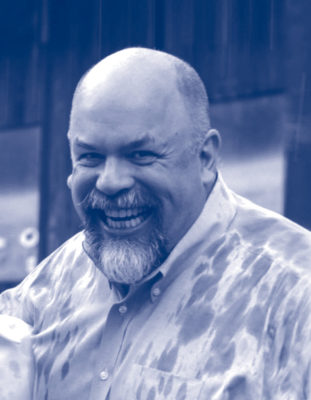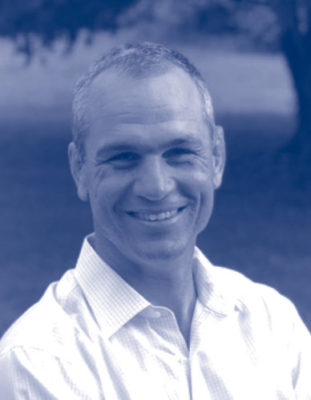Join the Mission Critical Team Institute
Collaborative Inquiry: MCTI Applied Research Model
MCTI is an applied research, training, and education institute which utilizes a “Collaborative Inquiry” research model allowing us to engage in research WITH, rather than ON, our partners. To better protect the privacy of both the teams, and individuals, within the MCTI community, we have adopted the New Zealand Kaupapa Māori engagement principles of initiation, benefits, representation, legitimation, and accountability [23].
Observation Stage: Observing a Novel Phenomenon and research initiation.
Through ongoing engagements and observations of our partner teams, we often encounter emergent issues facing the team’s human factors. Once the issue is identified and seen to be both emergent and in need of investigation, we will author a “Green Paper.”
Green Paper: Ideation and Representation Stage
A Green Paper is an initial description of an emergent issue or opportunity facing MCTs which we author and distribute to the MCTI community to determine if the issue warrants further investigation. A green paper is typically released utilizing the “unfinished principle” to encourage maximum engagement from the MCTI community.
Gray Paper: Legitimation and Accountability Stage
After receiving feedback from the MCTI community and engaging in rigorous academic research, MCTI will transition the Green Paper into a Gray Paper. This is our method for peer review to ensure that the community (which includes team members, academics, and subject matter experts) has an opportunity for final comments or objections. Once those comments are captured and validated, the paper is turned into a White Paper.
White Paper: Final Stage
The final paper is then reformatted into a white paper and distributed to the teams, such as our Residue article.
In cases where our teams are public-facing, or wish to share the research, we will also partner with them to formally publish our findings, such as:
A Better Approach to After-Action Reviews, Angus Fletcher, Preston B. Cline, and Matthew Hoffman, Harvard Business Review, January 12, 2023
A Novel Framework for Routine Versus Critical Communication in Surgical Education—Don’t Take It Personally, Falk, David MD; Cline, Preston EdD; Donegan, Derek MD, MBA; Mehta, Samir MDJournal of the American Academy of Orthopaedic Surgeons 31(3):p 115-121, February 1, 2023. | DOI: 10.5435/JAAOS-D-22-00912
Update the Curriculum
The information in the White Paper is then reformatted into the curriculum we teach within our MCTI courses which allows us to constantly update our curriculum based on emergent findings from the teams themselves. Our goal is to update modules within our curriculum every 6 to 12 months in order to provide teams with the tools they will need “on Monday.”
Research Distribution
The final step in our process is to record an interview with the authors on our podcast called the MCTI “Teamcast,” where we discuss and explain our ongoing research to the general public.
-

DETECTION
The human brain is constantly engaged in unconscious threat detection. Effective training can increase the speed and accuracy of that detection system.
-

RECOGNITION
Recognizing emerging threats in complex environments requires more precise pattern recognition and greater cortical authority.
-

REACTION
To override our inherent fight, flight, freeze response we need to develop intentional automated motor skills. To do this requires the refinement of technique through perfect practice.
-

RESPONSE
To sustainably and successfully navigate radical change events Operators require the cortical authority to rapidly transition between reaction and response. Response is the ability to think while acting.
-

RECOVERY
Individuals and teams that can’t find a way to recover after loss will be unable to sustain high performance.
Collaborative Inquiry Community
The Mission Critical Team Initiative was created to support those teams by inviting them into a Collaborative Inquiry Community to share effective practices, validate applied research, and innovate in the area of learning, instruction, and professional development.
We hope that this community will act as an incubator for innovative practices related to questions such as: How do we develop expertise to navigate complex environments? How do we maintain expertise, once we have it? How do we construct and maintain high-performance teams in the face of ongoing adversity?
NEUROSCIENCE RESEARCH
HUMAN PERFORMANCE RESEARCH
SCREENING & SELECTION
AEROSPACE
- National Aeronautics and Space Administration (NASA)
FIREFIGHTING
- Fire Department of New York (FDNY)
- National Advanced Fire and Resource Institute (NAFRI)
- San Diego Fire and Rescue Department (SDFRD)
- U.S. Forest Service — Wildland Fire (USFS)
- U.S. National Park Service — Wildland Fire (USNPS)
- Austin Fire Department
- Orange County Fire Authority
TACTIC LAW ENFORCEMENT
- Federal Bureau of Investigation
- U.S. Secret Service
MEDICINE
- Cleveland Clinic
- Stanford University Emergency and Trauma Medicine
- University of Pennsylvania Traumatology
- Shock Trauma Center at the University of Maryland
- Mayo Clinic
MILITARY SPECIAL OPERATIONS
- Australian Special Operations Command (AUSSOCOMD)
- Canadian Special Operations Command (CANSOFCOM)
- New Zealand Special Operations Forces (NZSOF)
- United Kingdom Special Forces (UKSF)
- U.S. Air Force Special Operations Command (AFSOC)
- U.S. Army Special Operations Command (USASOC)
- U.S. Army Special Operations Aviation Command (USASOAC)
- U.S. Joint Special Operations Command (JSOC)
- U.S. Marine Corps Special Operations Command (MARSOC)
- U.S. Naval Special Warfare (NSW)
MILITARY TRAINING & EDUCATION
- U.S. Air Force Weapons School (USAF-WS)
- U.S. Army John F. Kennedy Special Warfare Center and School (SWCS)
- Naval Special Warfare Training Command
NON-GOVERNMENTAL ORGANIZATIONS
- Team Rubicon — International Crisis Response (TR)
- Station Foundation FDNY Foundation
- Navy SEAL Foundation
PROFESSIONAL SPORTS
- Cleveland Indians (Major League Baseball)
- Philadelphia Eagles (National Football League)
- Pittsburgh Pirates (Major League Baseball)
- Toronto Blue Jays (Major League Baseball)
- Cleveland Browns
- New Zealand All Blacks
- Pittsburg Penguins
- Philadelphia 76ers
- Melbourne Storm
The MCTI Team
The Team
-

DR. PRESTON B. CLINE
-

COLEMAN RUIZ
-

JANESE JACKSON
-

HARRY MOFFITT
-

DAN DWORKIS
MCTI Faculty Past and Current
Dr. Preston B. Cline: Education, with a primary focus on Mission Critical Teams. www.missioncti.com. Currently, the CEO of Mission Critical Team Institute, a private applied research and education institute. BS, Rutgers University; M.Ed Harvard University, Ed.D. University of Pennsylvania. Senior Fellow, Center for Leadership and Change Management. Visiting Scholar in the Wharton Neuroscience Initiative (WiN). The Wharton School, University of Pennsylvania.
Dr. Dan Dworkis, MD PhD FACEP: Emergency Medicine, with a primary focus on the optimal development of mission critical medical teams. ScB, Brown University, M.D./Ph.D. Boston University School of Medicine, Residency Harvard Medical School. Currently, the Chief Medical Officer at the Mission Critical Team Institute www.missioncti.com and an Adjunct Professor of Emergency Medicine at the Keck School of Medicine of USC. Dr. Dworkis is the founder of The Emergency Mind Project.
Dr. Art Finch: Consulting Psychologist with a primary focus on team optimization, assessment and selection, culture, personality, and executive coaching. https://www.linkedin.com/in/art-finch-24559895/ BS and Ph.D., Brigham Young University. Retired COL and US Army Ranger (23 Years Active Duty). Currently MCTI Director of Psychology and Founder and President of The Gauge Group – Psychological Consultation.
Shea Diamond: Cognitive Science, Emotional Intelligence, Positive Psychology, and Adult Education. https://www.linkedin.com/in/sheadiamond/ BA, Saint Louis University, Master of Applied Positive Psychology, University of Pennsylvania (2024). Former Intelligence Officer with the US Air Force with multiple deployments. Served as the Wing Intelligence Weapons Officer, an instructor in the Intelligence Weapons Instructor Course and held the prestigious position of Chief of Academics at the US Air Force Weapons School.
Dr. Angus Fletcher: Angus Fletcher. Narrative Cognition, aka Low-Data Intelligence. Neurophysiology and Narrative Theory. BSc, University of Michigan, (Ph.D Yale). Army Commendation Medal for “groundbreaking research” into training imagination, intuition, and commonsense. Currently Professor of Story Science at Ohio State’s Project Narrative. angusfletcher.co
Anne Gibbon: Strategy & Data Analysis with AI, with a primary focus on innovating how humans interact with information using novel 3D graphics and drive decision processes with AI. BS, US Naval Academy. https://www.linkedin.com/in/anne-gibbon/ Currently, founder and CEO of Matri, an early-stage tech startup revolutionizing how teams manage complex decision processes with AI.
Shaun Huls: Human Performance. B.S. University of Nebraska, MS California University of Pennsylvania. Formerly head strength and conditioning coach, and combatives coordinator, for US Naval Special Warfare. Later served as Director of High Performance at the Philadelphia Eagles supporting their 2017 Superbowl win. https://en.wikipedia.org/wiki/Shaun_Huls. Currently, Director of High Performance at the Cleveland Browns.
Dr. Martin Ihrig: Knowledge Strategy. MBS University College Dublin, Ph.D. Technische Universität Berlin. He is an associate dean and clinical professor at New York University and a senior fellow at the Wharton School of the University of Pennsylvania. He is also the co-founder and president of I-Space Institute, an applied research and consulting venture that helps organizations create innovation and growth opportunities.
Dr. Zab Johnson: Neuroscientist, with a primary focus on vision and visual behavior. AB, Mount Holyoke, Ph.D. NYU. Currently executive director and senior fellow of the Wharton Neuroscience Initiative. An adjunct professor of Marketing at Wharton, University of Pennsylvania.
Dr. Joe Kable: Neuroscientist, with a primary focus on human decision-making. BS, Emory University, Ph.D., Neuroscience, University of Pennsylvania. Director of MindCore at the University of Pennsylvania, Primary Investigator, Kable Labs, and the Jean-Marie Kneeley President’s Distinguished Professor of Psychology at the University of Pennsylvania.
Dr. Dawn Kernagis: Neuroscientist, with a primary focus on neuroprotective strategies for individuals working in extreme environments. B.S. North Carolina State University, MPA, University of North Carolina at Chapel Hill, PhD. Duke University. Vice Chair for Research, Department of Neurosurgery at UNC School of Medicine, visiting research scientist IHMC. Currently, the Director of Scientific Research at Deep www.deep.com.
Blair Mannix: Admissions, with a primary focus on Selection and Assessment. BA, Saint Joseph’s University, M.S.ED University of Pennsylvania. https://www.linkedin.com/in/blairmannix/ Currently, Executive Director of Graduate Admissions at The Wharton School, University of Pennsylvania.
Anthony “Harry” Moffitt: Psychologist (APS registered) specializing in human performance and team development – BA, Edith Cowan University; MPsych, Deakin University. Served 30 years with Special Air Service Regiment (SAS) as Team Commander and Director of High-Performance. Currently Director MCTI Australia & New Zealand www.missioncti.com, senior lecturer at the Australian Institute of Police Management and Managing Director of Stotan Group.
Chief David Morkal: Leadership Development, with a primary focus on coaching and mentoring. BFA, University of Evansville. https://www.linkedin.com/in/david-morkal-83961797/ Currently serving on the Board of the Leary Firefighters Foundation. Retired from FDNY as a Battalion Chief after 33 years of service.
Dr. Mario Moussa: Organizational Consulting and Executive Education, with a primary focus on large-scale change initiatives, collaboration, and negotiation. BA, Northwestern University; MA, SUNY/STONY BROOK; MBA, The Wharton School; Ph.D., University of Chicago. President of Moussa Consulting. Currently, Affiliated Faculty, Organizational Dynamics at the University of Pennsylvania.
Dr. Gloria Park: Psychological Performance. B.A Villanova University, Masters, Applied Positive Psychology, University of Pennsylvania, Ph.D. Temple University. https://www.linkedin.com/in/gloriahmpark/ Currently, the Director of Performance Psychology at the Henry M. Jackson Foundation for the Advancement of Military Medicine.
Dr. Michael Platt: Neuroscientist, with a primary focus on the brain’s decision-making processes. BA, Yale, Ph.D., University of Pennsylvania. Currently James S. Riepe University Professor, University of Pennsylvania. He holds appointments in the Department of Neuroscience in the Perelman School of Medicine, the Department of Psychology in the School of Arts and Sciences, and the Department of Marketing in the Wharton School.
Dr. Sharon Ravitch: Education, with a primary focus on instructor professional development. B.A., Temple University, Ed.M. Harvard, Ph.D. University of Pennsylvania. Principle Investigator, Semillas Digitales Initiativeas. Currently, Professor of Practice, Graduate School of Education, University of Pennsylvania.
Holly Ridings: Spaceflight. B.S. Texas A&M University. NASA’s first female Chief Flight Director https://en.wikipedia.org/wiki/Holly_Ridings, Currently, She is the Gateway Deputy Program Manager, where she leads teams to build and launch NASA’s foundational infrastructure in deep space.
MCTI aims to improve the success, survivability and sustainability of Mission Critical Teams.
Signup / Login
MCTI © 2023
